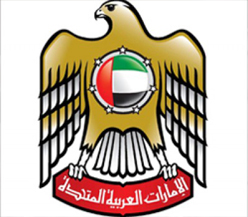Media Center
Dubai Ruler Issues Cabinet Decree to Amending Expatriates’ Medical Examination System
A new decree issued by His Highness Sheikh Mohammed bin Rashid Al Maktoum, Vice-President and Prime Minister of the UAE and Ruler of Dubai, amends several provisions on the medical examination system for arrivals to the UAE for work or residence.
Sheikh Mohammed issued the new decree of the Council of Ministers, resolution No. 5 of 2016, amending several provisions of the Cabinet Decree No. 7 of 2008, reports Arabic newspaper Al Bayan.
According to the decision, which was published in the new issue of the Official Gazette the text of articles 1, 2, 3 and 5 of the Council of Ministers resolution No. 7 of 2008, will amended as following:
Article No.1 stipulates the application of preventive measures and procedures prescribed by this resolution for expatriates arriving in the UAE to stay, without prejudice, to any other measures or procedures established under federal law No. 14 of 2014 on communicable disease control.
Acquired Immunodeficiency Syndrome (AIDS)
Under article 2, those arriving in the UAE for the purpose of residence will undergo medical examinations provided for in this decision, which will determine the conditions for the grant or renewal of residence according to the type of injury and the categories examined.
One would be the testing for AIDS or HIV, where the necessary examinations will be conducted to detect the disease for all categories of expatriates to stay in in the UAE when granting residence for the first time or when renewing.
According to the results of the examination, the visa will not be granted or renewed in case the result is positive and where the positive cases are considered inappropriate.
Viral hepatitis
In addition, tests would also include one to detect the disease viral hepatitis, where the test is confined for newcomers to the UAE who come to work for the first time in the country.
While categories of children’s nannies, housekeepers, domestic labourers and supervisors of nurseries and kindergartens who are going to renew their residence visa will be subjected to the test of Hepatitis Type B.
While those who are working in salons, beauty centres and healthclubs will be subjected to the examination of viral Hepatitis Type B and C.
As well as sanitation workers and will be examined viral Hepatitis Type B and C, as determined by decision of the Minister of Health and prevention community in coordination with other health providers.
According to the resolution, it will not be granting or renewing visa for the mentioned positive cases unless they change the purpose of request for residence visa.
Also, the decree pointed out that changing the purpose of residence for positive cases of Hepatitis should be within a period of not more than two weeks from the date of notification of the holder or sponsor by the result of the test.
According to the resolution, all negative cases of newcomers from the categories above will be vaccinated for the disease and that will be on three doses and given a certificate to prove they have received the vaccine
Negative cases, when renewing their residence visa, should highlight the certificate of vaccination for adoption that exempts them from taking the vaccine required for renewal in the absence of such vaccination certificate.
Tuberculosis
Tuberculosis examination is limited to lung tuberculosis only where all new applicants will be subjected to the examination of lung tuberculosis and the cases where the result of the test indicates they have an ancient pulmonary or active tuberculosis will be deemed unfit healthy and will not be granted residence visa.
Tuberculosis screening is for all residents renewing their residence visa and if the existence of an ancient or active pulmonary tuberculosis persists, the person in such case will be medically fit.
But in this case, the person will be subjected to a follow-up by the department of preventive medicine or equivalent in government health bodies.
In this case, the person is granted health fitness certificate of accommodation stating the words subject to treatment, which gives the residence visa holder one-year validity only to monitor the situation during this period.
In the event of non-compliance of patient treatment under direct supervision or lack of commitment to three consecutive visits, a person will be considered unfit, along with procedures taken to inform stakeholders and not renew that residency.
In cases of tuberculosis with treatment-resistant bacteria, the infected person will be subjected to treatment inside the country to be cured and then, if deemed fit, will have residency renewed.


